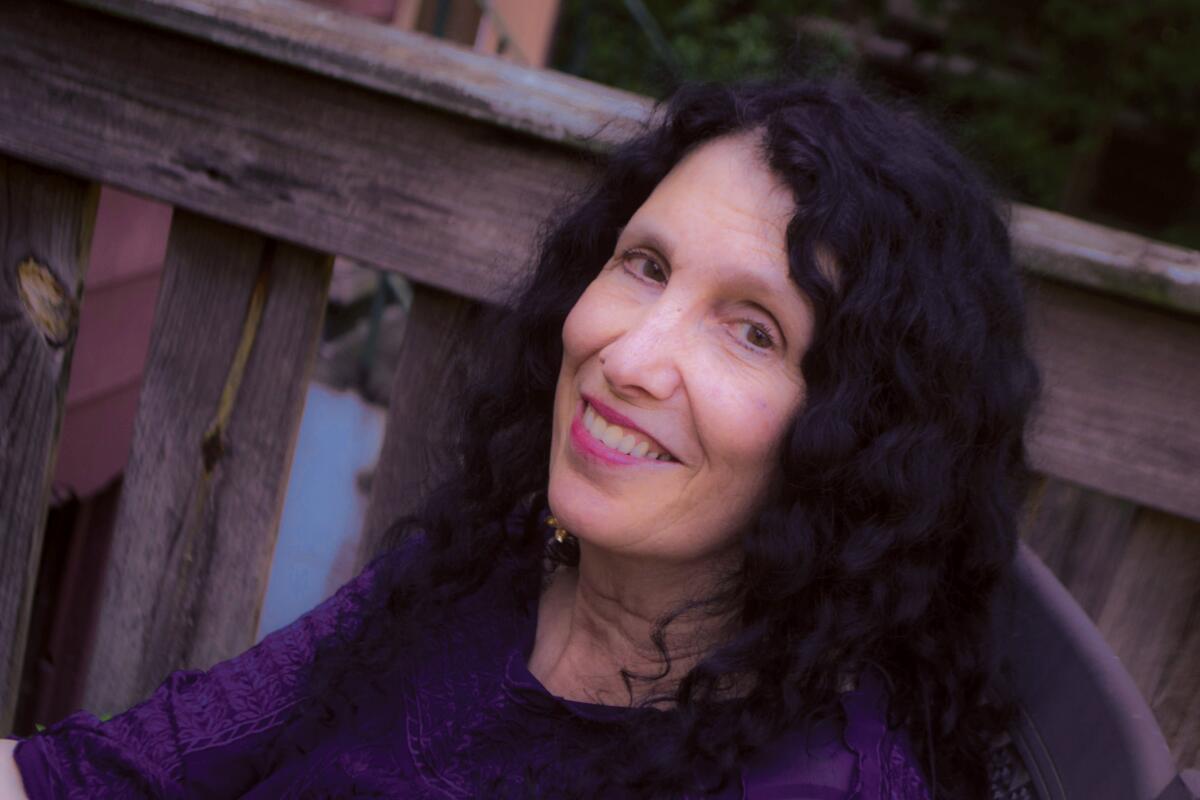A mother tries to exercise choice in the face of class struggles and incarceration

Leavitt’s gift for complex yet self-aware protagonists makes us root for them, even if they’re misguided.
- Share via
Book Review
Days of Wonder
By Caroline Leavitt
Algonquin: 320 pages, $29
If you buy books linked on our site, The Times may earn a commission from Bookshop.org, whose fees support independent bookstores
I’ve never met Caroline Leavitt, but I think of her as a comrade — a sister-soldier in the army of American writers facing down an increasingly ruthless publishing industry. Some authors adopt an “every human for themself” approach to the competition for book deals, visibility and sales. Others, Leavitt among them, make kin of their competitors. Leavitt’s social media promotions of other writers’ deals, publication dates and events ring with the kind of enthusiasm most authors reserve for their own work. When the pandemic canceled book tours, Leavitt co-founded A Mighty Blaze, “an organization of 35 professional creative volunteers connecting writers with readers online,” supporting not only books but also the indie bookstores in which authors normally meet their audiences.
Besides being a stellar literary citizen, Leavitt is also a versatile, talented writer. A widely published book critic, she was named a New York Foundation for the Arts Fellow for her fiction and won a National Magazine Award for personal essay. She was a finalist in the Nickelodeon screenwriting awards and in the Sundance Screenwriters Lab. Her blog, “Runs in the Family,” appears monthly in Psychology Today.
With “Days of Wonder,” her 13th novel, Leavitt proves she hasn’t been too busy loving on other authors or writing essays to continue honing her primary craft. Her gift for creating complex, unpredictable yet self-aware protagonists is on full display with Ella Fitchburg, the star of “Days of Wonder,” who gets pregnant and, lacking access to abortion, places the baby for adoption, then comes to regret it.
As is her way, Leavitt infuses a much-told story with contemporary social issues that render the work fresh and provocative and deep. She guides us, firm-handed, from the fiery, cross-class first love between Ella, child of a single Jewish seamstress, and Jude, son of a prominent, wealthy judge, to Ella’s 24-year imprisonment for attempting to murder Jude’s raging father. Ella discovers her pregnancy after Jude has been scrubbed from her life and the prison gates have been slammed shut behind her.
“‘You cannot raise a baby in here,’ the warden said. ‘You can’t live from visit to visit.’”
Ella’s mother, Helen, demands: “‘What do you think will happen when you get out, and [your daughter] has her own life, her own apartment?’”
The few children Ella had seen in the prison visiting area “had looked shy and crumpled. Maybe Helen was right.”
In chapters alternating between Ella, Helen and Jude’s points of view — moving, sometimes confusingly, between time frames — Leavitt makes us feel the pain that results. “Helen’s grief taunted her. Every time she saw a dark cap of curls, reminding her of her daughter’s, she froze in pain. … She felt she was slowly going mad.”
During Ella’s sixth year in prison, a journalist proves that judicial corruption sent her there, and she is unexpectedly released. At 22, she is a changed woman tossed out into a changed world. A convicted felon, Ella lacks the means or the will to launch the court fight that would free her of that label. Instead, she is propelled by a single obsession: to find her daughter. Truth be told (and Ella rarely tells herself, or the reader, the full truth), she doesn’t just want to locate her daughter. She wants to get her back.
Ella spends the rest of the novel doing whatever it takes — legal and illegal, moral and immoral, smart and self-destructive — to make that happen. She moves to Ann Arbor, Mich., where her daughter’s adoptive parents have been raising her. “Ella came back the next day and the next, and each time she saw them, she learned something new. … The truth was, she didn’t know how she might parent her own child. … This gave a new purpose to her watching: she’d take her clues from Carla’s parents to figure it out.” Ella stalks them. She meets them. She ingratiates herself to them. “She kept hearing that lawyer’s voice. … They will never give your child back. But her yearning pulled at her like a rubber band, constantly stretched to the end of snapping. She had to know her daughter. She had to somehow be close to the one beautiful thing she had created in her life.”
From this point, Leavitt asks a lot of her readers. In order to attach to Ella, to root for her mission’s success, the reader must at once realize the self-centeredness of Ella’s grand delusion and also forgive it. We must invest in Ella’s goal, all the while knowing it’s not in the best interest of her daughter, who already has a wonderful mom. It’s a tribute to Leavitt’s seasoned skills that as the plot thickens, the characters evolve and the pages fly, the reader’s commitment to a misguided outcome deepens along with Ella’s.
As we hurtle toward an ending that somehow surprises despite its inevitability, Leavitt urges us to consider the tangle of social issues that her story unearths: class, religion, America’s corrupt legal and prison systems, domestic abuse, teen pregnancy and the unreliable morality of the heart.
Meredith Maran, author of “The New Old Me” and other books, lives in a Silver Lake bungalow that’s even older than she is.
More to Read
A cure for the common opinion
Get thought-provoking perspectives with our weekly newsletter.
You may occasionally receive promotional content from the Los Angeles Times.









